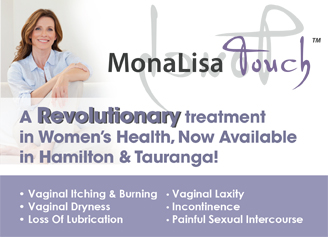Milk may increase mortality and fractures in Women
November 5, 2015, no responses, by: Women Health Center, Tags: Women
A recent study by Swedish researchers has found a higher mortality (both women and men) and a higher fracture risk in women with a high intake of milk. They do caution against any dietary recommendations based on their findings.
(Read the full study here http://www.bmj.com/content/349/bmj.g6015)
They analysed data on 2 large cohort studies (61433 women ages 34 to 74 years and 45339 men aged 45 to 79 years) using food frequency questionnaires, and obtained data on common food and beverages consumed on a daily and weekly basis.
During a median of 22 years, 15541 women died and 17252 women had a fracture.
Women who drank three or more glasses (680 g) of milk a day had almost twice the risk for death compared with women who drank less than one glass a day (hazard ratio [HR], 1.93, 95% confidence interval [CI], 1.80 – 2.06). Women who drank more milk also had a higher risk for any type of fracture (HR, 1.16; 95% CI, 1.08 – 1.25) and for hip fracture specifically (HR, 1.60; 95% CI, 1.39 – 1.84).
A wide variety of covariates were adjusted for using hazard ratio calculations, including (but not limited to) age, smoking status, body mass index, height, educational level, Calcium and vitamin D supplementation, use of cortisone, physical activity and Charlson’s comorbidity index.
Adjusting for nutrients associated with osteoporosis or fracture risk using a sensitivity analysis,, the researchers found an even stronger association between high milk intake and outcomes. They also found an association between high milk intake and oxidative stress and inflammation.
There was no similar association between fermented milk products, including yogurt and cheese. They did not distinguish among fat levels in milk, such as skim and whole, but lumped all milk consumption into one category.
The researchers conclude “One potential candidate for the discrepant results for different types of dairy products is D-galactose content”. “The intake of D-galactose from non-fermented milk is considerably higher than that from other food sources, including cheese and fermented milk products.” They cite animal studies that have linked D-galactose to premature aging.
“Our results may question the validity of recommendations to consume high amounts of milk to prevent fragility fractures. The results should, however, be interpreted cautiously given the observational design of our study.”
Missing from the study however is a discussion of bone density and family history of osteoporosis as well as activity levels. Also previous randomised controlled studies have displayed no clear pattern of risk.
I would urge caution in interpreting these findings.
Categories
- Endometriosis (3)
- Female Sexual dysfunction (1)
- General (7)
- Incontinence (1)
- Infertility (2)
- Interstitial Cystitis (1)
- Menopause (5)
- Overactive Bladder (1)
- Polycystic Ovaries (1)
- Surgical (2)
Archives
- October 2017 (2)
- March 2017 (1)
- March 2016 (1)
- February 2016 (1)
- November 2015 (3)
- October 2015 (5)
- September 2015 (1)
- August 2015 (2)
- July 2015 (3)
- March 2015 (2)
- January 2015 (1)
Recent Posts
- How Accurate is biopsy sampling in Endometrial Cancer?
- Hormone Therapy: WHI study Follow up reveals no change in Mortality after 18-Year
- How to manage Interstitial Cystitis/Bladder Pain Syndrome?
- Potential Benefits of Diagnosis and Treatment on Health Outcomes Among Elderly People With Symptoms of Overactive Bladder
- The Zika Virus summarised



Leave a Reply